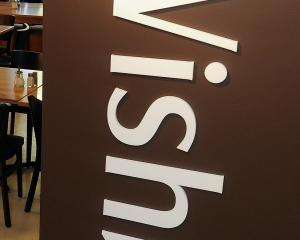The euro zone's sick economy could be back in its second recession in just three years as the debt crisis sucks the life out of southern Europe and widens the gap between Germany and the rest of the zone.
The New Zealand currency fell to a five-month low yesterday as Greek politicians struggled to form a new government.
The lack of a government heightened speculation Greece will soon be out of the euro zone.
Across the Tasman, the Australian dollar fell below parity with the US currency for the first time since December last year.
Craigs Investment Partners broker Chris Timms said it would come as no surprise to find the euro zone back in recession. The United Kingdom was back in recession and the United States had come perilously close to a double dip recession.
However, the data was always historical, reviewing what had happened rather than what would happen, he said.
"A euro zone recession will place some negative weight on to European sharemarkets and will have a ripple-on effect to New Zealand, Australia.
"But, on the positive side, we are more likely to look at what is happening in China and Australia than Europe and we are more protected than we have been in the past."
Australia remained New Zealand's largest export market with 23%, followed by China on 12.5%. China was New Zealand's largest source of imports at 16% last year with Australia second at 15.8%. China was now Australia's largest trading partner and, clearly, Australasian trade was strongly linked to China.
At 3pm, the New Zealand dollar was sitting at A77.93 and US77.67, having fallen 6% against the US dollar since the beginning of the month, Mr Timms said.
At 5pm, the kiwi was trading at A77.94 and US77.81.
The currency continued to be volatile having been as low as US50c in March 2009, a high of US88c in July last year, down to US74c in November last year and now at US77c.
IG Markets analyst Cameron Peacock said the main impact on Australian investor sentiment was continued uncertainty over Greece's political situation, and the potential effect on its position in the euro zone.
"Also weighing on sentiment is a concern over the robustness of the Chinese economy.
"While inflation pressures have eased in China, paving the way for more easing from the People's Bank of China, the market's concern is with China's slowing growth profile," he said.
Reuters reported that European businesses and households were engulfed anew as governments cut back on spending to curtail budget deficits and companies froze plans to invest as they were unable to find a way back to economic growth.
Optimism at the start of the year the euro zone would escape a downturn had been crushed by unexpected contractions in manufacturing, consumer confidence and business morale.
One in 10 of every worker in the euro zone was out of a job.
"The euro zone economy is heading into recession and is not likely to recover any time soon," Citigroup London economist Jurgen Michels said.
"This definitely won't be that mild and will probably last much longer than policy makers expected," he said.












